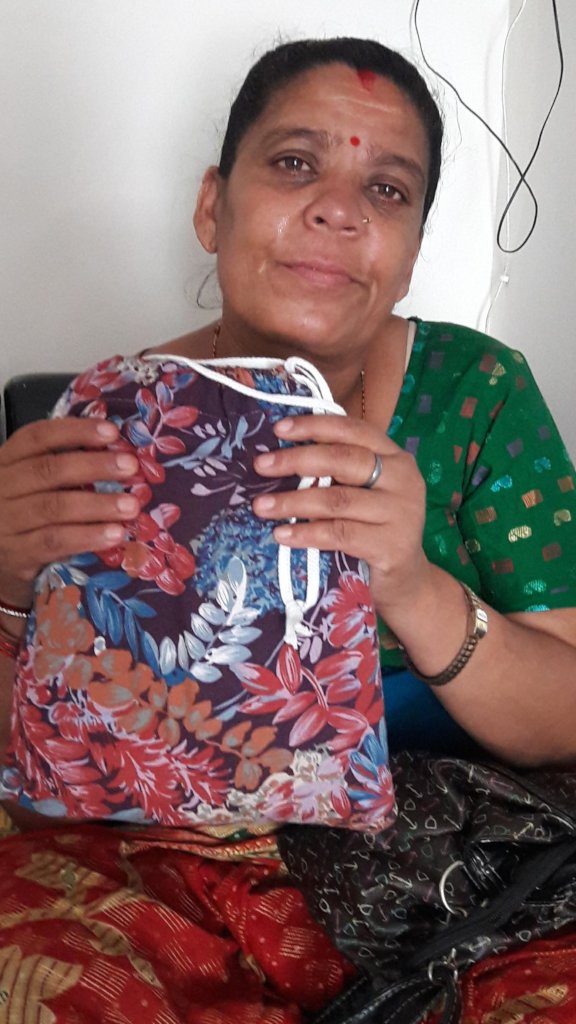
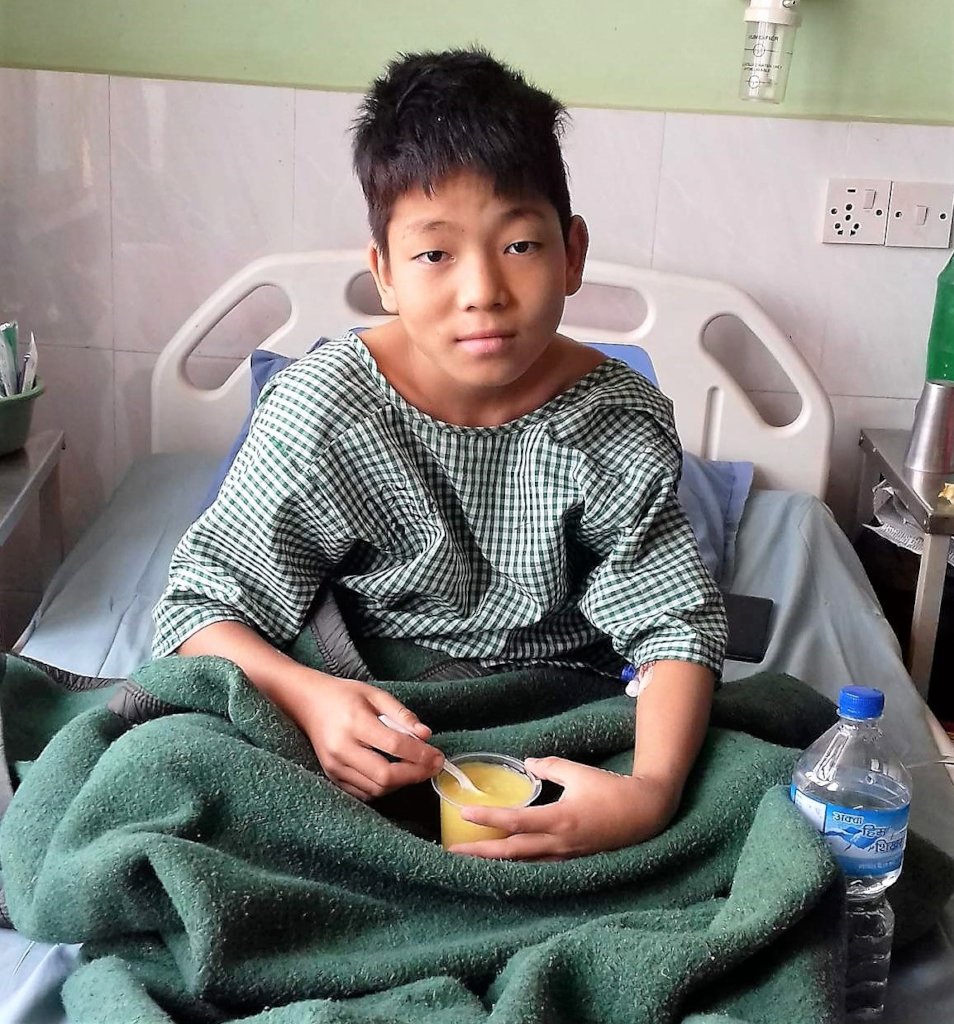
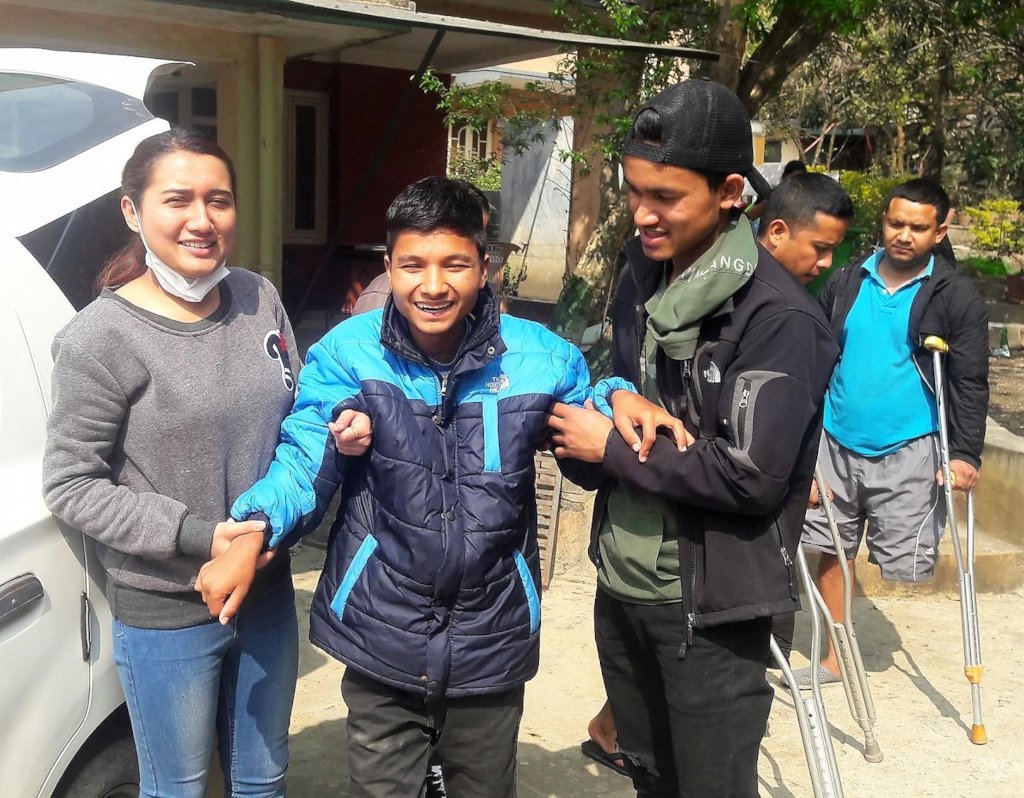
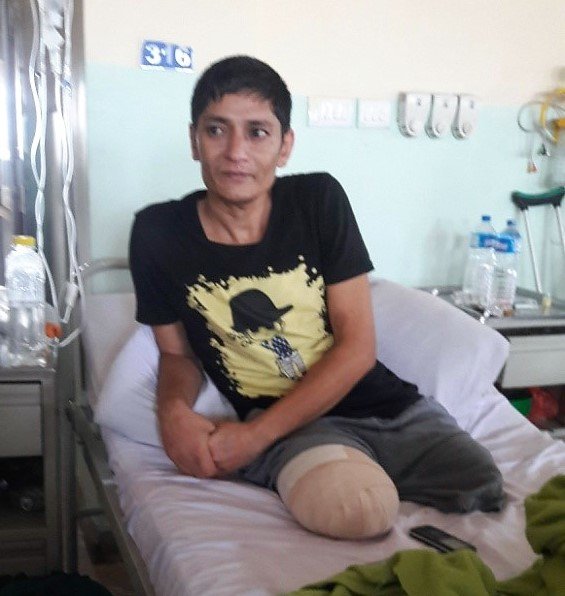
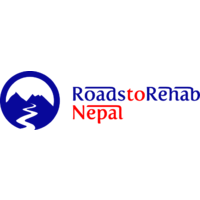
Our purpose is to advance health outcomes by raising funds to support the work of our project partner organisation, Medical Rehabilitation Organisation (MeRO), previously known as Nepal Healthcare Development Foundation (NHEDF). ABOUT MERO: MeRO is a Nepal Social Welfare Council registered organization and was established following the devastating earthquake in 2015 when it was called Nepal Healthcare Equipment Development Foundation (NHEDF). It has since changed its' name to better reflect what they do. OUR MISSION/VISON: Both Roads to Rehab Nepal and our project partner organisation, Medical Rehabilitation Organisation share the same mission. We believe access to free health and medic... read more Our purpose is to advance health outcomes by raising funds to support the work of our project partner organisation, Medical Rehabilitation Organisation (MeRO), previously known as Nepal Healthcare Development Foundation (NHEDF). ABOUT MERO: MeRO is a Nepal Social Welfare Council registered organization and was established following the devastating earthquake in 2015 when it was called Nepal Healthcare Equipment Development Foundation (NHEDF). It has since changed its' name to better reflect what they do. OUR MISSION/VISON: Both Roads to Rehab Nepal and our project partner organisation, Medical Rehabilitation Organisation share the same mission. We believe access to free health and medical care should be a universal human right regardless of income, age, gender, caste, religion or geographical location. Our work reflects many articles of the United Nations Declaration of Human Rights. We are non-discriminatory; we support children, women and men of all ages, castes, religions and ethnic groups; we help alleviate poverty; we improve access to health care and advance health outcomes; we support people with disabilities and their families. OUR AIMS/GOALS: With our project partner, MeRO, we improve health outcomes by funding and facilitating access to medical and surgical intervention, nursing care, physiotherapy and rehabilitation services for people, usually from remote and regional areas of Nepal who are referred to MeRO's Shelter and experience life changing illness or injury but cannot access these services due to poverty. MeRO's patients roads to rehabilitation are often long and complex, but between us, we change the lives of people who have no one else to turn to and nowhere else to go. One of MeRO's most important goals is to advocate for its patients who are multi-dimensionally poor, at risk and extremely vulnerable to exploitation. WHY WE EXIST: There are many reasons why we exist but the most important one is because many people living in remote regions of Nepal do not have access to medical and surgical intervention, nursing care, physiotherapy or rehabilitation services. Medical care is not free in Nepal and poverty is widespread. WE SUPPORT PEOPLE FROM REMOTE AND REGIONAL PARTS OF NEPAL: Almost all people living in remote and regional parts of Nepal are multi-dimensionally poor. An estimated half a million people every year are thought to fall below the poverty index. Most of MeRO's patients come from remote or regional parts of Nepal, and have to travel to major cities like Kathmandu to access anything more than simple health and medical care. The remote regions from which they come are severely lacking in well-resourced good quality medical facilities. Most larger villages have a clinic staffed by a Health Assistant who has done two years of training and can dispense 35 different medications and do basic wound care and vaccinations, but their medical knowledge is poor. There may not be a district hospital for anywhere up to a 2 - 3 day walk. In some regions dirt roads have paved the way for lengthy rough journeys on a local bus so larger towns no longer have to be accessed on foot but smaller district hospitals may offer only rudimentary services only - they often do not have operating theatres, anaesthetists, surgeons or anaesthetic machines, or staff who can use them. Diagnostic technology like X-rays, CT scans and MRIs, along with ancillary services like pathology are often basic or non-existent. Traditional healing is practiced, often with devastating results. There are often no other options other than travel to Kathmandu or even India (which is cheaper) in search of a diagnosis, treatment or medical care, for themselves or their loved ones. WE SUPPORT PEOPLE LIVING IN POVERTY: Nepal lies somewhere between the 27th and 30th poorest countries in the world, with up to 25% of its population living below the poverty line and an additional half a million people a year are estimated to drop below it. Many people living in regional and remote areas of Nepal live below the poverty line. When patients are referred to MeRO, they are in desperate circumstances and many are unable to return to their pre-injury employment because of their illness, injury or disability. Parents or other family members may not be able to work and/or children many not be able to go to school, because they have spent weeks, or even months, caring for a hospitalised, sick or disabled family member. Occasionally the person is left alone at home for hours on end, day after day after day in shocking circumstances. If patients have offensive wounds or obstetric fistula, they are often banished to outhouses or sheds because medical care is simply not accessible Patients are often referred to MeRO having incurred huge medical debts. Many of MeRO's patients owe money to family, money lenders and/or their local community and are often homeless and sometimes suicidal and it is not unusual for patients to come to the Shelter with medical bills of US$20,000 - 25,000. Such debts are incurred at any stage of their medical journey. Any savings are long-gone by the time they come to MeRO and many patients have often sold all or most of their land which is only enough to grow some food and maybe have a small amount of livestock and subsist. Sometimes people are forced to sell their house which has been in their family for generations in order to pay their medical bills. Other patients keep a small parcel of land on which they later build a shack. Some sell everything and become homeless. Patients are often suicidal. Some of MeRO's patients are injured working overseas, usually in Malaysia or the Gulf, and are sent back to Nepal after initial treatment with no compensation. There is also no such thing as workers compensation in Nepal. When people are injured as guest-workers, all their savings from working overseas may end up going on medical bills and they may also end up with nothing left. WE SUPPORT PEOPLE WHO ARE VULNERABLE TO EXPLOITATION: Most of MeRO's patients are extremely vulnerable for many reasons including, but not limited to poverty. They come from remote regions; they have an injury or an illness or a disability; they face issues of gender and caste discrimination; they believe in traditional remedies or think that an illness or injury is a punishment from the gods; they are uneducated, often illiterate and lack health literacy; and they have no idea of how to navigate the medical system in Nepal. They need someone to advocate for them because many are directed, unknowingly, to the private medical system rather than the public. They also need a safe place to stay in Kathmandu whilst they are undergoing assessment, diagnosis, treatment and medical rehabilitation. They also need someone to help them navigate the complex and often corrupt medical system with which they are completely unfamiliar. WE SUPPORT PEOPLE WITH DISABILITIES: Life in Nepal is tough and life for someone with a disability in Nepal is even tougher. People with a disability are generally not treated kindly or compassionately in Nepal. Women and girls, even female babies, are sometimes not considered worth spending money on, and medical care is not free. The Government may provide a disability allowance if certain criteria are met, but this is approximately the equivalent of US$44 a month and many hurdles are put in the way which makes it difficult to access it. For many of MeRO's patients, they may not have a disability when they come to MeRO, but will have one after their treatment, as they may have a wound infection for example which results in osteomyelitis (bone infection) and then they have to have the limb amputated, or they may have a burn or bone cancer, and may then end up with an amputation. Many patients arrive with a disability because they could not afford to be treated at the time of their injury so broken bones from accidents affecting their limbs, hips or spine mean they do not set properly. Many women, children and babies in Nepal suffer severe burns from cooking on or falling into open fires which are used for cooking on. Burns contractures result in disability so they have to be released. WE SUPPORT WOMEN LIVING WITH OBSTETRIC FISTULA: We also support women with fistula who are referred to MeRO and usually live in desperate poverty. These women who have experienced catastrophic obstetric injury cannot seek medical attention because they are poor. Also knowledge of fistula in Nepal is poor and their injury is often not recognised or attributed to the work of the gods. They are marginalised and socially isolated, often living in stables or caves having been abandoned by their family and ostracised by their community. Sometimes they may have had attempted surgical repair(s) of their fistula but these often fail, so they live with permanent urinary and/or faecal incontinence. They also have multiple medical conditions related to direct and indirect consequences of living with fistula. HOW WE DO IT: We fund specific aspects of MeRO's work. Our operating costs are minimal and almost 100% of all donations goes directly to our project in Nepal. MeRO has tremendous support both from the local community within Nepal as well as from us and this helps with other things like food, bills, transport and so forth to ensure everything for their patients is free. The amount of financial support we can give to MeRO is directly related to the number of donations we receive. Likewise, the number of patients MeRO can accept is dependent on their funding. To this day hospitals, health care workers, community organisations, other not-for-profit organisations in Nepal and individuals, especially nursing and medical staff, continue to refer more patients to MeRO than they can accept and we are so grateful to GlobalGiving for your support.

Each of GlobalGiving’s nonprofit partners is required to send quarterly donor reports detailing the impact of their work. Here are some of their recent updates:
By Virginia Dixon | President, Roads to Rehab Nepal
Namaste, In this report we thought we would explain why MeRO sometimes has so many patient with burns. In Nepal burns are the third-most common cause of injury affecting 2% of the population. Patients... Read the full report ›By Virginia Dixon | President, Roads to Rehab Nepal
Namaste and welcome to our November project report. Whether you have made a general donation, or one that supports the wages of MeRO’s clinical staff, or your generosity has provided medical... Read the full report ›By Virginia Dixon | President, Roads to Rehab Nepal
Namaste to our wonderful GlobalGiving Community, Welcome to our July project report. In Australia we have just entered a new financial year and the years are flying past since we first started working... Read the full report ›